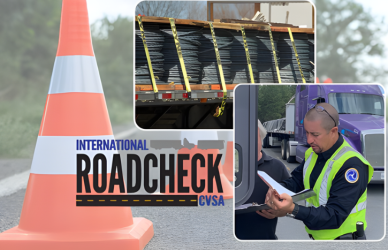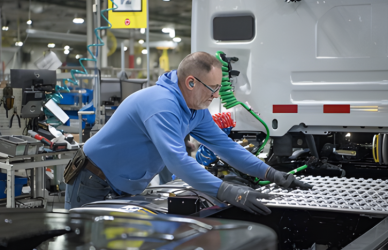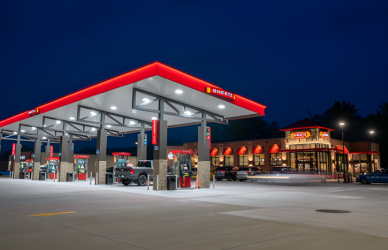With the rise of electric-powered commercial trucks, new design considerations are being made for vehicle components beyond the propulsion system. One such consideration is tires.
While newer electric models have improved and gotten lighter, EV batteries can still add up to 5,000 pounds of weight to the vehicle depending on battery type and range.
Weight and torque are the two main factors that affect electric trucks’ tire performance and wear. Electric motors are providing greater and instantaneous torque, which affects rolling resistance. The torque is also different with regenerative braking systems found in EVs as compared to hydraulic braking.
Tire makers are taking note of these operating differences and the impact on their products to examine potential reconfigurations for tires on EVs that will help optimize performance and minimize wear. The hope is these new designs will also help reduce the amount of time fleets spend reworking tried and true cycle metrics and replacement practices.
“We see a requirement to increase load capacity, and we see potential in terms of reducing rolling resistance,” said Helmut Keller, Continental’s head of product management for truck tires in the Americas. “But, and [this is] the tricky part, we cannot sacrifice mileage as we know it today.”
In most cases, specialty tires for Class 8 vehicles are in the research and development phases while tire makers assess the needs as well as the best materials and construction to achieve these goals.
Since heavy-duty electric truck adoption is slower than that of passenger vehicles or even light trucks, tire manufacturers are using the data from these smaller vehicles to influence some of the decisions being made around tire design for heavy-duty tires.
“There are actually a fair number of similarities between the needs for a consumer EV tire and a commercial EV tire when we compare them to their [internal combustion engine] counterparts,” said David Reese, Goodyear’s vice president of product development for the Americas. “We do tend to see a little bit faster wear on consumer EV tires, and we can anticipate maybe some quicker wear on commercial.”
“The emergence of Class 8 [battery-electric vehicles] seems to be gaining traction in the industry lately,” said Jim Garret, product category manager at Michelin North America. “Michelin believes they will eventually be commonplace on roads, but the technology is not yet ready for use in many regional and long-haul trucking applications.”
Because tires exhibit different wear patterns on EVs compared with diesel-powered trucks, fleets may want to educate themselves so that they may appropriately update their metrics for traditional wear cycles.











